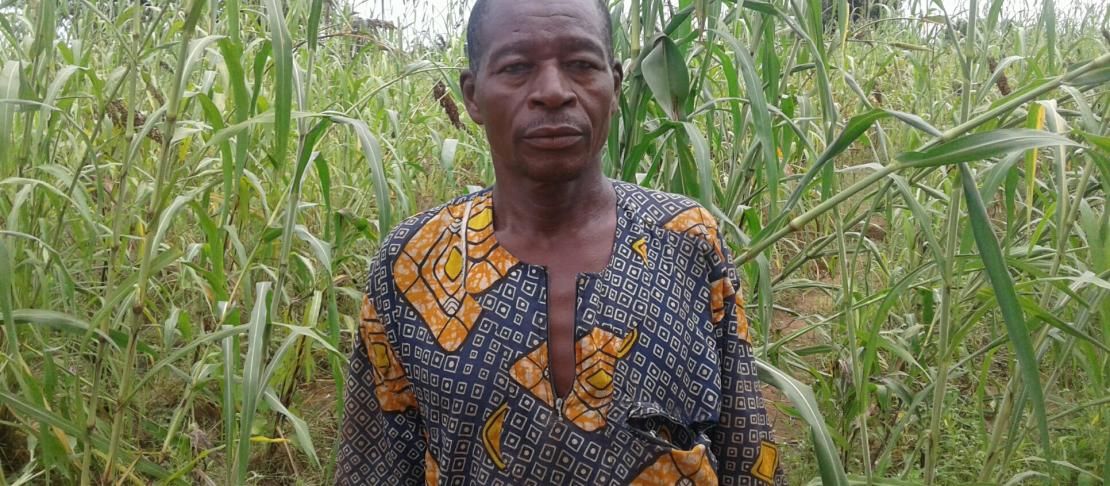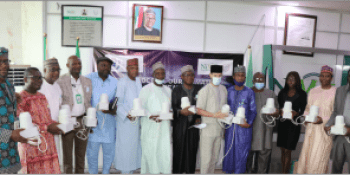Dery Christopher: How the Climate-Smart Village approach changed my life

The story of how Dery Christoper, an innovative farmer in northern Ghana, benefits from the CCAFS Climate-Smart Village approach.
He proudly shows part of his yield: a huge heap of maize, another huge heap of red sorghum on the roof, and additional piles of millet and soybean.
It's a spectacle - the variety and large quantities of crops yielded this year. Five years ago, this would have seemed unimaginable in this village. Dery is confident that this amount of production can be repeated going forward.
Three or four years ago, he didn’t expect such yields. This small producer didn’t have information about climate-smart agriculture or climate information services. His agricultural strategy was based only on traditional methods. Given increasing pressure on the land and a changing context for growing due to climate change, Dery was experiencing annual declines in agricultural production.
Bompari is located in Northern Ghana, which is particularly vulnerable to climate change and has a high rate of poverty, which limits local farmers’ capacity to adapt to climate change. Higher temperatures and erratic rainfall have become the characteristics of the climate in Bompari. Compounding these characteristics, Dery and many others in this community faced a lack of access to information and resources on how to adapt their agricultural practices under climate change.
I had to accept the negative effects of climate change on my livelihood. With unpredictable and erratic rainfall, my production had dropped, and I did not know how to handle the situation.
Prior to becoming a Climate-Smart Village, Bompari residents only grew sorghum. After drought-tolerant varieties of maize, soybean and groundnut were introduced through the Climate-Smart Village (CSV) approach, farmers in Bompari were able to diversify.
"For the past 3 years I’ve been taught by CCAFS and its partners about how to cultivate maize and soybean, plus our traditional sorghum, using best practices like tied ridges and planting in rows instead of mounds,” Dery said.
No more fear of the future
Now that Dery is receiving climate information on his mobile phone through a CCAFS-ESOKO partnership, poor weather conditions are no longer a barrier to his farming activities. The knowledge he gained from climate information services and climate-smart agricultural technologies have not only increased his confidence in investing in agriculture, it has tangibly improved his family’s livelihood; he has become more climate-resilient.
In Bompari, climate-smart activities have been so beneficial to farmers that they are now able to save up money from their income earned from their harvests. Previously, poor production compelled farmers to buy food. Now farmers yield more than what their families need, allowing more income from selling excess that can pay for medical needs and children’s school fees.
When asked about his future plans, the proud farmer said he is planning to farm during the dry season, as water and soil moisture conservation techniques are no more mysteries to him.
With integrated soil fertility management options – such as composting, and efficient use of mineral fertilizers – I don’t need to wait till the first rain starts. I can grow some varieties according to seasons.”
Such agricultural and agroforestry activities allow the Ghanaian producer to treat agriculture as a business, through which he can also generate income. His experience, along with many others in his community, suggests that climate-smart agriculture, including the Climate-Smart Village approach, is a proven way to reduce poverty in the face of climate change.
Read more:
Dansira Dembélé is the communications assistant at CCAFS West Africa based at ICRISAT Mali



